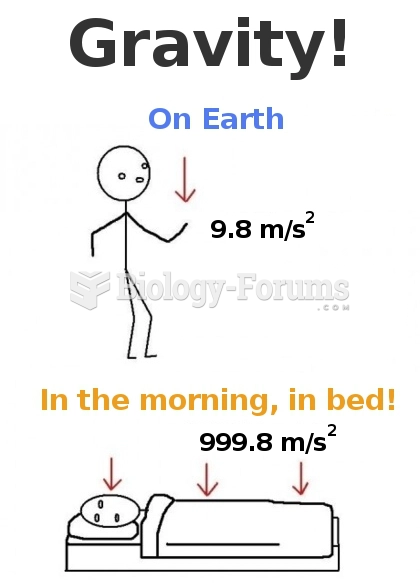|
|
|
Most childhood vaccines are 90–99% effective in preventing disease. Side effects are rarely serious.
To maintain good kidney function, you should drink at least 3 quarts of water daily. Water dilutes urine and helps prevent concentrations of salts and minerals that can lead to kidney stone formation. Chronic dehydration is a major contributor to the development of kidney stones.
Illicit drug use costs the United States approximately $181 billion every year.
The first successful kidney transplant was performed in 1954 and occurred in Boston. A kidney from an identical twin was transplanted into his dying brother's body and was not rejected because it did not appear foreign to his body.
About 100 new prescription or over-the-counter drugs come into the U.S. market every year.







